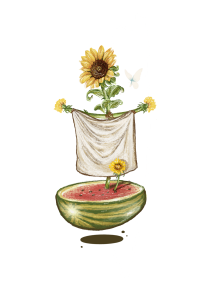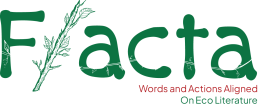A festival is a celebration. In the context of a literary festival—such as the Jakarta International Literary Festival (JILF)—we celebrate the diversity of literary expressions and the thoughts that move around them. We celebrate the emergence of new talents in today’s literary scene, as well as how literary writers—intellectuals as a whole—discuss issues that are developing in the literary scene, as well as issues outside of literature that influence literature. We also celebrate meetings because these ideas come not only from the social circles that we have been familiar with for so long, but also from neighboring countries; those who seemed far away, but are actually close to our hearts.

A festival is a celebration. In the context of a literary festival—such as the Jakarta International Literary Festival (JILF)—we celebrate the diversity of literary expressions and the thoughts that move around them. We celebrate the emergence of new talents in today’s literary scene, as well as how literary writers—intellectuals as a whole—discuss issues that are developing in the literary scene, as well as issues outside of literature that influence literature. We also celebrate meetings because these ideas come not only from the social circles that we have been familiar with for so long, but also from neighboring countries; those who seemed far away, but are actually close to our hearts.
JILF is a literary festival organized by the Jakarta Arts Council’s Literary Committee in response to the rapid flow of contemporary literature and to mark Jakarta as a city of literature, a festival city, which is equal in value to big cities in the world today. With this festival, Jakarta tries to become a center of reckoning for Indonesian and world literature that is developing and how literary works react or involve themselves in contemporary issues that are currently being hotly discussed among us. With this positioning, JILF is ultimately not just a literary festival, but also a joint commitment in facing a world that is changing and threatened by many problems.
The “Anthropocene Crisis” is an important issue that is currently happening in our world today. Humans who have claimed themselves as the center of the universe, now have to bear the consequences of that claim and the arbitrary treatment of nature by humans. Nature cannot be completely subdued, but nature can also fight back in its own way, starting from climate disasters that occur around us to environmental damage that requires humans to work hard to save this beloved earth. Humans are ultimately no longer the center of reckoning, but are just one element of nature that can become extinct. However, it is precisely from humans that efforts to save the environment, the ecosystem of our lives, can begin.
JILF is a form of our joint commitment in re-discussing the important and critical position of literature. In these festival forums we reconsider the autonomy of literature and how literature is involved, art in general, plays an important role in fighting for the earth as a more habitable place and giving sustainable hope to human life. Literature, in the end, must be placed in its position as a social force that can drive change for the better. Literature—which relies on the power of words—is now present as a shared voice in saving the earth and the universe from the threat of imminent destruction.
Will we succeed?
The question is actually not only to re-examine the ontological position of literature as a universal language of civilized humans, but also to re-examine the relationship between literature and other arts and forces that have the same concerns and commitments. Together with these other forces, our literature positions itself in a new and critical way. We test the endurance of literature while pushing it to a more political position, not only the art of words that has shaped the noble culture of humans, but also the practical power of words in raising awareness and moving the social dynamics of society. We confront literature with a more practical situation, without trying to eliminate its contemplative aspects that have made human actors into beings full of wisdom.
Together with writers from neighboring countries and other countries who are collaborating in this festival, we discuss various topics that are relevant to the festival’s main theme “F/Acta: Words and Actions Aligned on Eco-Literature”. We not only agree on the power of literature as the art of words that has given important value to human civilization since literature was discovered, but we also disagree on the realities that are currently happening. Differences of opinion in discussion forums at this festival must be seen as a wealth of discourse that is important to appreciate and is evidence of the progress of our thinking in seeing the relationship between literature and socio-political and environmental issues that occur around it.
This festival also prioritizes collaboration as a working principle that is a must in our lives today. With collaboration we find strengths that we do not have and we learn to perfect ourselves—to emphasize the dominance of the anthropocene that we actually criticize as well—on the other hand we also bring important things that we have to become part of shared knowledge. In this festival, we present researchers in the field of science, environmental activists and indigenous communities, journalists who focus on climate change and environmental issues to establish an exchange of information and knowledge with literary writers. Hopefully this dialogue will be the beginning of closer cooperation between groups that rarely discuss in one forum. Collaboration ultimately encourages us, us, our unity as world citizens, nations that still give importance to literature in this increasingly losing charm life. We both give importance to literature as a common strength, our universal language since ancient times.
To those who support this festival, we express our gratitude for your support so far. To all writers involved in this festival, we welcome you to the Jakarta International Literary Festival 2024. Hopefully our festival this time will achieve the best results and encourage the progress of literature in our respective countries. Enjoy the festival.




